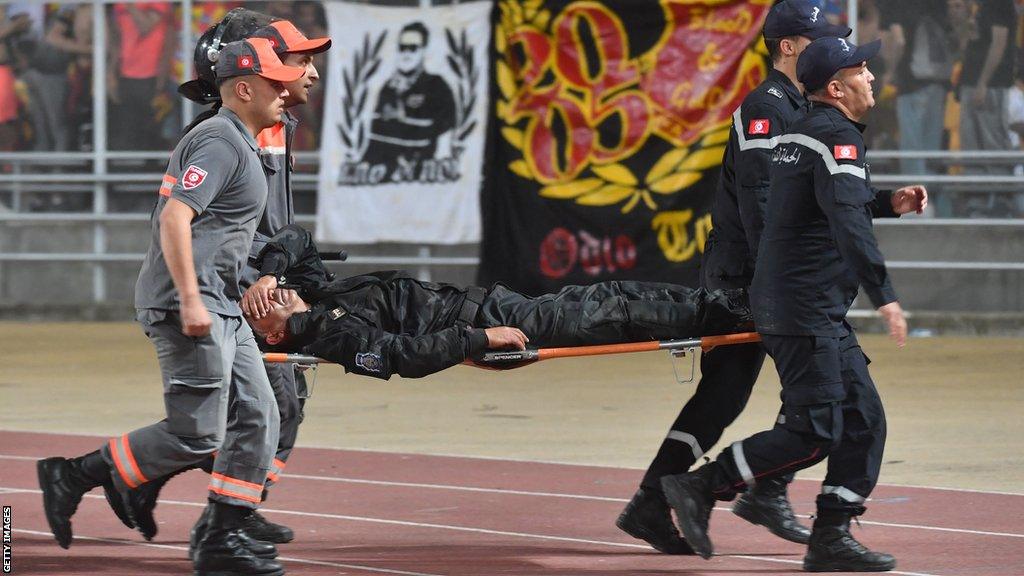Tunisia bids to cut football violence by paying 'ideal' fans
- Published

Tunisian club Esperance have been ordered to play their next two African Champions League games behind closed doors following fan violence
The Tunisian Football Federation (FTF) is to offer financial rewards to "ideal" supporters in an attempt to reduce the number of violent incidents in stadiums.
Police officers have been injured and countless arrests have been made as a result of an alarming rise in confrontations in recent years.
A riot at Esperance's African Champions League game against Algeria's JS Kabylie, which included a fan wielding a chainsaw, is the most recent of a series of high-profile disturbances.
FTF president Wadia Jariaa met with Tunisia's interior minister, Kamal El-Feki, to discuss the incidents.
In a statement on its social media page, the FTF said the meeting "addressed different methods to combat violence in stadiums by using successful examples from other countries".
The federation, with the help of the Tunisian Football League, intends to give away 10,000 dinars (拢2,592) to the team whose supporters are deemed "ideal" during every top flight and domestic cup game for the rest of this season.
The scheme could be expanded into lower leagues next season if it is judged successful.
The cash incentives are a departure from conventional methods normally employed by football authorities around the world such as fines and increased security.
Following the riot at Esperance's Rades Stadium in Tunis on 29 April, the four-time African champions were issued with a stadium ban by the Confederation of African Football (Caf) which means they must play their next two Champions League games behind closed doors, including the semi-final against Eygpt's Al Ahly.
The club was also fined $300,000 (拢236,718) and will suffer a season-long ban from the Champions League if there are any similar incidents in the next 12 months.
It is not Esperance's first such punishment; Caf forced the team, nicknamed the Blood and Gold, to play two Champions League matches behind closed doors last season
With official fan groups playing an integral part in organising the matchday experience in Tunisia, it is hoped that engaging multiple parties will foster a sense a shared responsibility.
As part of its plan, the FTF says it is also working with local authorities to improve e-tickets sales and also investigating the use of private security to replace current in-house stewarding systems.